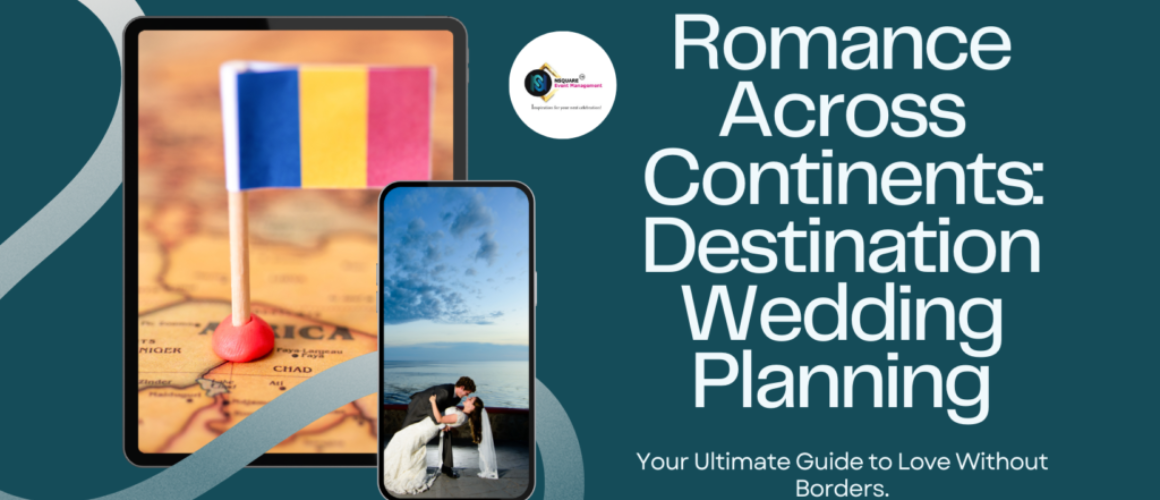Romance Across Continents: Your Guide to Destination Wedding Planning
There’s a certain allure to exchanging vows in a far-off place, where the backdrop is as breathtaking as the love you share. Destination weddings are the epitome of romance and adventure, offering couples a unique and memorable way to celebrate their union. Planning such a wedding, however, comes with its own set of challenges. Here’s your comprehensive guide to navigating the journey of planning a destination wedding.
1. Selecting the Ideal Destination
The first step in planning a destination wedding is choosing the perfect location. Consider the following factors:
- Personal Connection: Select a place that holds significance for you and your partner.
- Accessibility: Ensure the location is accessible for most of your guests.
- Climate and Season: Research the best time to visit your chosen destination to avoid unfavorable weather.
- Legal Requirements: Check the marriage laws and requirements of the destination.
Popular choices include tropical beaches, European castles, and scenic mountains. For instance:
- Beach Bliss: Hawaii, Bahamas, Thailand
- Historic Elegance: Tuscany, Edinburgh, Prague
- Nature’s Splendor: Banff, New Zealand, Swiss Alps
2. Budgeting Wisely
Creating a realistic budget is crucial for a destination wedding. Account for:
- Travel Costs: Airfare, transportation, and accommodations.
- Venue Fees: Site rental, permits, and insurance.
- Vendors: Local vendors for catering, photography, and florals.
- Extras: Welcome bags, excursions, and unexpected costs.
Setting a clear budget helps you manage expenses without compromising on your dream wedding.
3. Early Invitations and Save-the-Dates
Destination weddings require advanced notice. Send save-the-date cards 12 to 18 months ahead, followed by detailed invitations about six months before the wedding. Include:
- Travel Information: Nearest airports, transportation options, and travel tips.
- Accommodation Options: Recommendations for hotels and rental properties.
- Itinerary: A schedule of events and activities planned around the wedding.
4. Enlist a Local Wedding Planner
Hiring a local wedding planner can be a game-changer. Their knowledge of the area, relationships with vendors, and understanding of local customs will ensure a smoother planning process. They can assist with:
- Vendor Coordination: Recommending and negotiating with local vendors.
- Legalities: Navigating marriage license requirements and paperwork.
- Logistics: Managing on-the-ground details, from transportation to decor setup.
5. Venue Visit and Planning Trip
If possible, visit your chosen destination before the wedding. This trip allows you to:
- Meet Vendors: Have in-person meetings with your planner, caterer, and other key vendors.
- Taste and Test: Sample menu options, cakes, and try out makeup and hair stylists.
- Plan Activities: Scout locations for group activities and excursions.
6. Incorporate Local Flavors and Traditions
Infuse your wedding with local culture to enhance the experience. Consider:
- Cuisine: Serve local dishes and delicacies at your reception.
- Music and Entertainment: Hire local musicians or dancers to perform.
- Customs and Rituals: Incorporate traditional ceremonies or blessings.
This not only adds a unique touch to your wedding but also makes it more memorable for your guests.
7. Curate an Intimate Guest List
Destination weddings often have smaller guest lists, which can create a more intimate and personal atmosphere. Invite close family and friends who will appreciate the travel and be part of your special day. This also helps keep costs down and ensures a more manageable event.
8. Prepare for the Unexpected
Flexibility is key when planning a destination wedding. Prepare for potential challenges such as:
- Weather Issues: Have a backup plan for outdoor events.
- Travel Delays: Allow extra time for guests to arrive and settle.
- Vendor Hiccups: Work closely with your planner to have contingency plans.
9. Prioritize Guest Experience
Show appreciation for your guests’ efforts to join you by making their experience enjoyable:
- Welcome Bags: Include local treats, maps, itineraries, and essential items.
- Group Activities: Organize tours, dinners, or activities to help guests explore and enjoy the destination.
- Comfort and Convenience: Provide information on transportation, dining, and sightseeing.
10. Capture the Magic
Hire a professional photographer and videographer with experience in destination weddings. They will understand how to capture the beauty of the location and the emotions of the day. Consider having a day-after session to take advantage of the destination’s scenery.
Conclusion
A destination wedding is a celebration of love that goes beyond borders, creating a magical experience for you and your guests. By thoughtfully selecting your location, budgeting wisely, and embracing local culture, you can plan a wedding that is as unique as your love story. Remember, the journey is as important as the destination. With careful planning and a sense of adventure, your destination wedding can be a dream come true, filled with memories that will last a lifetime.
Embark on this journey with an open heart and a spirit of joy, and let the romance of your love story unfold across continents.






